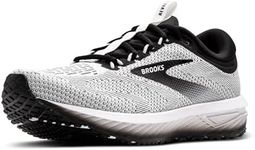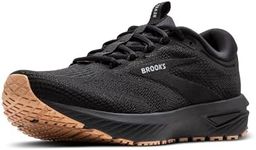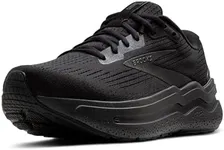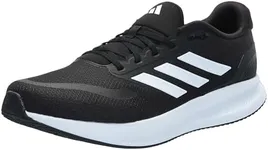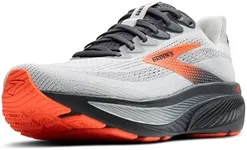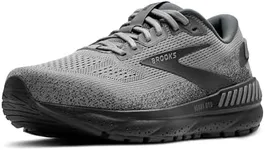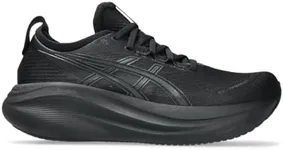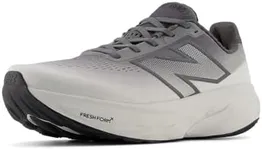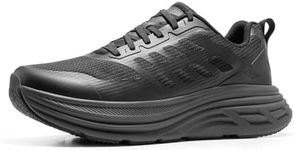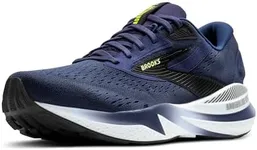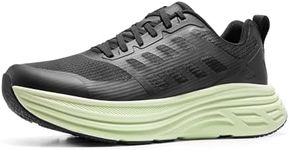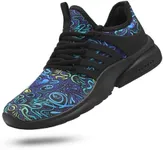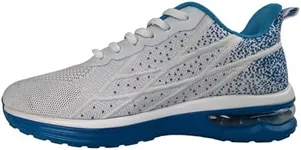Buying Guide for the Best Running Shoes For Heavy Men
Choosing the right running shoes is crucial, especially for heavy men, as it can significantly impact comfort, performance, and injury prevention. When selecting running shoes, it's important to consider various factors such as cushioning, support, durability, and fit. Understanding these key specifications will help you make an informed decision and find the best pair of running shoes for your needs.CushioningCushioning refers to the amount of padding in the shoe, which helps absorb impact and reduce stress on your joints. This is particularly important for heavy men, as more weight means more impact with each step. Cushioning can range from minimal to maximum. Minimal cushioning is lighter and allows for a more natural feel but may not provide enough shock absorption for heavier runners. Moderate cushioning offers a balance between comfort and responsiveness, suitable for most runners. Maximum cushioning provides the most shock absorption and is ideal for heavy men who need extra support to protect their joints.
SupportSupport in running shoes helps maintain proper foot alignment and prevent overpronation (excessive inward rolling of the foot). This is important for heavy men as they are more likely to experience overpronation due to the added weight. Support can be categorized into neutral, stability, and motion control. Neutral shoes are best for runners with a normal arch and minimal pronation. Stability shoes offer additional support for mild to moderate overpronation. Motion control shoes provide the highest level of support and are ideal for severe overpronation, offering maximum stability and preventing excessive foot movement.
DurabilityDurability refers to how long the shoes will last before they need to be replaced. For heavy men, durability is especially important as the added weight can cause shoes to wear out more quickly. Durable shoes are typically made with high-quality materials and reinforced in high-wear areas such as the outsole and upper. When choosing running shoes, look for those with a robust construction and materials that can withstand the extra stress. This will ensure that your shoes provide long-lasting performance and support.
FitFit is crucial for comfort and performance. Running shoes should fit snugly but not too tight, with enough room in the toe box to wiggle your toes. For heavy men, it's important to ensure that the shoes provide adequate width and volume to accommodate a larger foot size. Shoes that are too tight can cause discomfort and lead to blisters, while shoes that are too loose can cause instability and increase the risk of injury. When trying on running shoes, make sure to wear the same type of socks you plan to run in and try them on later in the day when your feet are slightly swollen to get the most accurate fit.
BreathabilityBreathability refers to how well the shoes allow air to circulate, keeping your feet cool and dry. This is important for heavy men as they may generate more heat and sweat during running. Breathable shoes are typically made with mesh or other lightweight, ventilated materials that promote airflow. When choosing running shoes, look for those with good breathability to prevent overheating and reduce the risk of blisters and other foot issues caused by excessive moisture.
